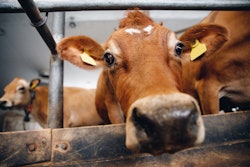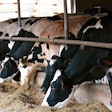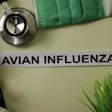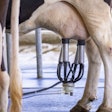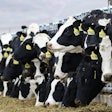
The U.S. Food and Drug Administration (FDA) said tests have indicated the presence of avian influenza (AI) virus in pasteurized milk, but says it believes pasteurized milk is safe for human consumption and will conduct further testing.
The presence of the virus, which has affected dairy cattle in eight states since late March, has been detected in raw milk. Pasteurization is likely to inactivate the virus, FDA said, however the process is not expected to remove the presence of viral particles. Therefore, some of the samples collected have indicated the presence of AI using quantitative polymerase chain reaction (qPCR) testing.
“During the course of the outbreak, the FDA has been evaluating milk from affected animals, in the processing system, and on the shelves,” the agency said in an April 23 update on its website. “We are completing a large representative national sample, to better understand the extent of these findings. Because qPCR findings do not represent actual virus that may be a risk to consumers, the FDA is further assessing any positive findings through egg inoculation tests, a gold standard for determining viable virus. To date, we have seen nothing that would change our assessment that the commercial milk supply is safe. Results from multiple studies will be made available in the next few days to weeks.”
Additionally, FDA said U.S. government partners have been working on a wide range of studies looking at milk along all stages of production – on the farm, during processing and on shelves – using well- established methodologies used previously to confirm pasteurization effectiveness for known pathogens.
“This includes testing laboratory generated samples inoculated with high levels of a recently isolated and closely related avian flu virus and samples of raw, unpasteurized milk directly from cows in affected herds with and without symptoms to understand how, and at what levels, heat treatment (pasteurization) inactivates the virus,” FDA said. “While this information is important, this testing alone cannot provide a complete picture as these samples are not representative of what we would expect to see in the real-world from milk routed to pasteurization and processing for commercial use.”
The agency said work is underway to test samples of milk in systems that represent industry practices using the range of temperature and time combinations that are used in pasteurization processes. Additional analysis is underway of milk on store shelves across the country in addition to work to evaluate any potential differentiation for various types of dairy products.
FDA reiterated that it has a longstanding recommendation not to consume raw milk and that producers should not manufacture or sell raw milk or raw milk products. FDA has also recommended producers take precautions when discarding milk from affected cows so that the discarded milk does not become a source of further spread.
“Producers should consult with their state regulatory authorities for specific recommendations or requirements; however, such precautions should include heat treatment, pasteurization or its equivalent, of discarded milk prior to dumping in lagoons or application of waste solids and ensuring biosecurity around lagoons (e.g., ensuring that animals and birds do not have access to lagoons). Any raw milk or raw milk products from exposed cattle that are fed to calves (or to other animals, such as farm cats) should be heat treated or pasteurized,” FDA said.




